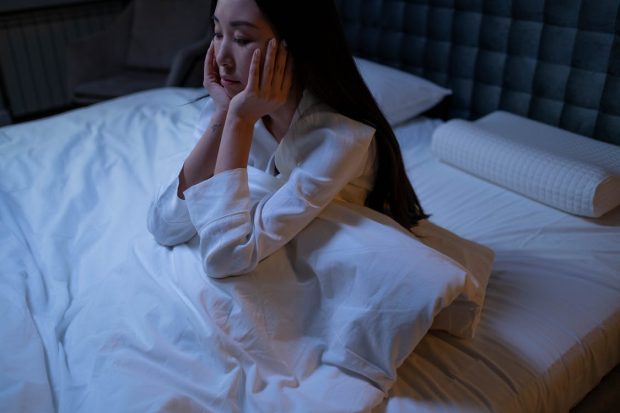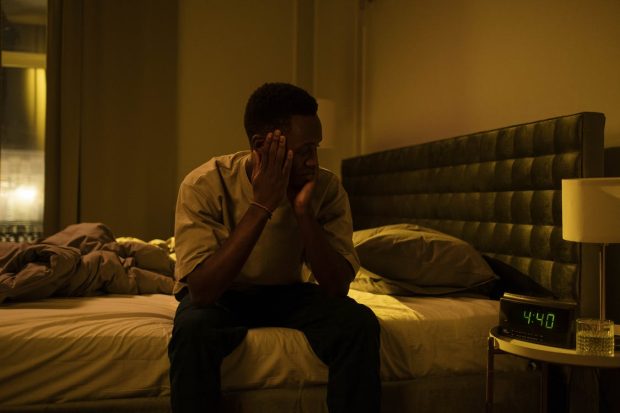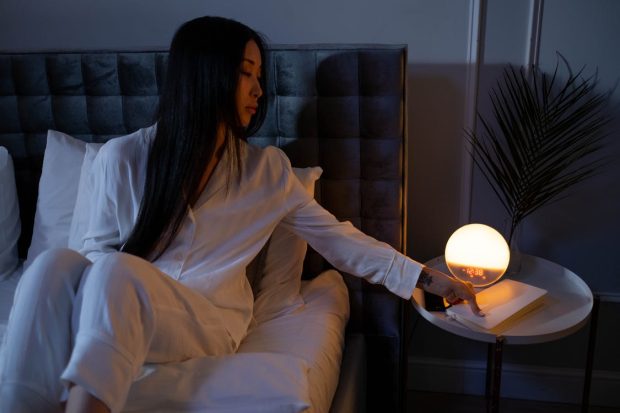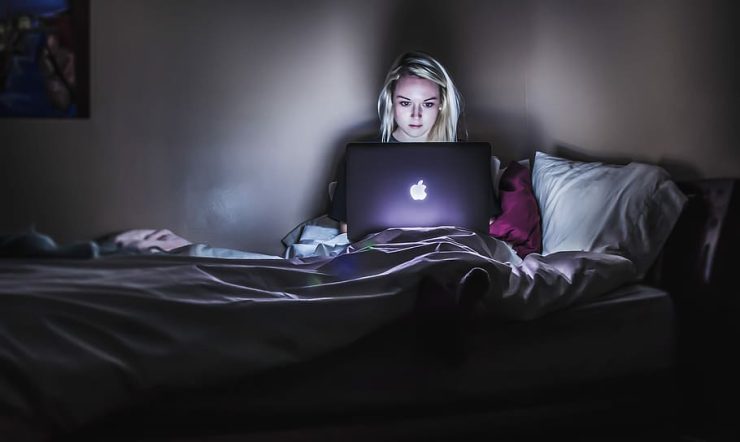When you’re tossing and turning in the middle of the night or staring at the ceiling wondering anxiously if you’ll get to sleep, it can help to know a whole lot of people are dealing with the same issue. Symptoms of “insomnia,” namely, problems falling asleep, staying asleep, or getting quality sleep, affect 33-50 percent of adults, Cleveland Clinic reported in 2024.
Sleep problems are often a manifestation of stress. Many people go through temporary bouts of insomnia. It can be a perfectly normal mental health reaction to life stressors.
Insomnia may also point to the existence of an underlying mental health disorder, however. What many people don’t know is that quite a few mental illnesses can cause sleep problems. Insomnia is often a symptom of mood or anxiety disorders like post-traumatic stress disorder (PTSD). (Learn more about how treatment at FHE Health is helping those with mental health disorders like PTSD find relief from insomnia and other symptoms.)
How, then, do you know if insomnia is an underlying health issue or a symptom of a mental health diagnosis? The below advice will provide some generalized information about what to know and look for. Ultimately, the best way to answer this question is to consult a doctor, sleep specialist or mental health professional. For a lot of people, getting an accurate diagnosis is critical to better sleep and quality of life.
Acute vs. Chronic Insomnia and Causes

Insomnia can be acute or chronic, but about 95 percent of Americans claim to have acute (as in short-term) episodes. Transient insomnia is often related to mental health issues like stress, tension, anxiety, depression, and obsessive worries. Roughly half of insomnia cases are related to mental health.
As for the other roughly 50 percent of insomnia cases? They are attributable to a wide range of physical issues, whether chronic pain, arthritis, neurological issues, diabetes, dementia, or hormonal issues or changes such as menopause; and medications can also cause insomnia.
Sleep experts attribute insomnia to “hyperarousal,” which can be both mental and physical. Hyperarousal is a physiological stress response. When triggered, the brain and body go into a state of high alert. Naturally, someone who is in this hypervigilant state will not sleep as well or as much.
Pretty soon, not being able to get to sleep can become its own self-fulfilling cycle. Sleep-related anxieties can foster more bedtime fears, only amplifying the hypervigilance and intensifying the insomnia. A lot of people develop sleep anxiety and get obsessed and start to catastrophize. (This is where CBT therapy for insomnia can be very helpful in stopping runaway thoughts and reducing anxiety in the lead-up to bedtime.)
The Role of Circadian Rhythm

Circadian rhythm problems can also account for sleep difficulties (acute or chronic). Every person has a biological, internal clock that operates on a 24-hour cycle, otherwise called their “circadian rhythm.” When that rhythm gets out of whack, whether because of jet lag, hormonal changes, or shift work, it can disrupt sleep.
In addition to causing acute insomnia, circadian rhythm problems can signal a more chronic sleep-wake disorder such as:
- Delayed and advanced sleep-wake disorder, characterized by needing to fall asleep and wake up much earlier than most people
- Irregular sleep-wake rhythm disorder, which means your sleep and wake times are constantly erratic, never following a general pattern like they should with a regular circadian rhythm
- Shift work disorder, which as its name suggests refers to sleep issues that arise from working long or irregular shifts
Address Sleep Hygiene

Many people don’t pay attention to “sleep hygiene” or know what it is and how it can significantly improve their sleep. Sleep hygiene refers to the bedtime rituals or practices that help your mind and body prepare for sleep and get regular sleep.
When people notice they’re having difficulties sleeping, one of the first things they can do to explore what may be the root issue is to create a healthy sleep routine. Some basic ways to do that:
- Go to bed at the same time and wake up at the same time seven days a week.
- Since the body’s circadian rhythm is heavily influenced by light, reduce exposure to light. If you’ve got floodlights on in the bedroom, your body won’t recognize that as time to sleep.
- Eliminate screen time a couple hours before bed. The blue light from a Smartphone or other electronic device inhibits the sleep hormone melatonin, which must rise for sleep to occur.
Often, better sleep hygiene via lifestyle and environmental changes can be enough to greatly improve sleep; and if these changes don’t work to address insomnia, that itself can be valuable information.
Insomnia Due to a Mental Health Disorder?

Meanwhile, another worthwhile consideration can be whether there are other mental health symptoms at play that could signify a mental health disorder. Here it’s important to look at insomnia in the context of other things. Have your eating habits changed? Have you experienced changes in personality and mood? Are you tearful, sad, or feel life isn’t worth living? Someone with depression may be sleeping a lot or not very much at all.
In other words, a lot of other symptoms must be present to know if insomnia is occurring as the result of a mental health condition. The common culprit: an anxiety disorder like PTSD or a mood disorder.
If you’re noticing a change or symptom and wondering how to manage it, talk to a medical professional. Insomnia is a treatable condition. Many people have found help for it from therapy, medication, or other interventions. You can, too.
Dr. Beau A. Nelson, DBH, LCSW, is Chief Clinical Officer at the national behavioral health provider FHE Health.




























